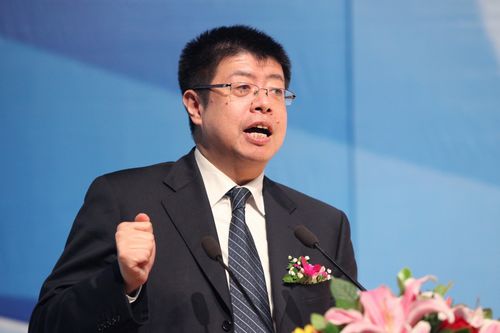'Chinese dream' needs a practical spirit
- By Zhang Yiwu
 0 Comment(s)
0 Comment(s) Print
Print E-mail China.org.cn, March 22, 2013
E-mail China.org.cn, March 22, 2013
 |
|
A file photo of Zhang Yiwu, a culture critic and professor with Peking University. |
The "Chinese dream" has become an increasingly hot topic both on-and-offline in recent months, as it holds a blueprint for the Chinese people. The "Chinese dream" stands as the result of a century of diligent work fueled by the past three decades of reform. It calls for the resurgence of the Chinese nation, societal harmony and solidarity, and individual happiness. This year's NPC and CPPCC sessions have given us confidence and a promise in the "Chinese dream."
However, we are confronted by complex issues and severe challenges in the pursuit of this dream, and must work steadily and earnestly to pursue realistic solutions.
To begin, I think we need to first understand the national situation and the country's development level, and appraise China's international standing based on this information. The "Chinese dream" needs to be based suitably on realistic conditions and public expectations. China has made remarkable progress in reform and opening up, but its average GDP per capita of around US$5000 lags far behind that of developed countries.
Often referred to as a BRIC country (Brazil, Russia, India and China), China's overall development parallels other emerging nations. Material, cultural and environmental demands are growing rapidly, and societal expectations are following suit. Such trends follow historical precedent and are exacerbated by economic development.
More, we need to understand the diverse demands of the public to form more complete vision. Some problems are difficult to solve because the participants are constrained by different expectations and interests. Each person has their own individual preferences, affecting society as a whole. We need to work together to innovate, reform, coordinate and cooperate. We need to join together in order to rejuvenate our nation.
Under these conditions, it is important to carefully lay the foundation for the "Chinese dream." Firstly, there is a relationship between development and the environment. Without development there would be no way to solve ongoing and future social problems. But with development comes increased environmental and food safety issues. Chinese citizens have expressed a desire for both continued economic development and increased environmental protection. People need both cars and blue skies. How to achieve a balance between these two interests is a long-term challenge for the government.
Secondly, there is a direct relationship between economic development and social security. The public has higher demands for more social security and welfare, including greater access to medical care and education. This also follows historical precedent. An important point of note is that social development cannot outpace economic development.
The "Chinese dream" is a common expectation and desire for the Chinese nation. We must remain diligent in the pursuit of this dream, and that in order to realize our hopes and goals we must address the complexities of economic and social development.
The author is a culture critic and professor with Peking University.
The post was first published in Chinese and translated by Zhang Tingting.
Opinion articles reflect the views of their authors, not necessarily those of China.org.cn.





